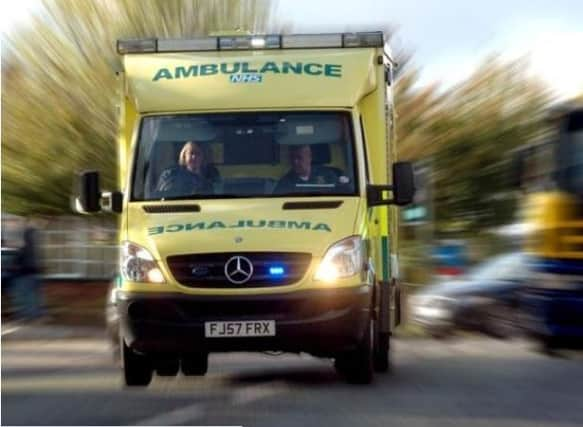Armed forces will be sent to Leicestershire to help support non-emergency patients during ambulance strikes


Members of the armed forces will be sent to Leicestershire to help support non-emergency patients during next week’s ambulance strikes.
Staff from the East Midlands Ambulance Service (EMAS) are set to walk out on Monday February 20 and Tuesday February 21 because of an ongoing dispute over pay and working conditions.
Advertisement
Hide AdAdvertisement
Hide AdSeveral ambulance strike days have taken place in recent months, with staff calling on the Government to improve their pay and working conditions.
EMAS has said that a higher demand was put on the service during the early February strike dates, which it hadn’t been seen before.
In response, members of the armed forces are being drafted in to support the service on the coming strike days, but won’t be used to respond to emergency 999 calls.
Ben Holdaway, director of operations at EMAS, said: “We expect the industrial action period next week to be very challenging, and the implementation of military support has always been part of the NHS plans in case of increased and sustained pressure.
Advertisement
Hide AdAdvertisement
Hide Ad“At EMAS, we are expecting up to 20 military colleagues to be available to us. Their role will be to drive vehicles in addition to the safe moving and handling of lower acuity patients and essential equipment. This will enable our emergency crews to focus on responding to life-threatening and very serious 999 calls.
“It is important that the public use services wisely and make their own way to a treatment centre or hospital if safe to do so; this allows us to send our ambulances with life-saving equipment and clinicians on board to people who really need them.”
More than 3,000 ambulance staff, including paramedics, emergency care assistants, call handlers and others from across the Midlands are expected to join the picket next week.
Two more strike dates are to take place next month on Monday, March 6 and Monday, March 20.
Advertisement
Hide AdAdvertisement
Hide AdDuring early February ambulance strikes, staff said that they are at “breaking point”.
One paramedic, with 20 years experience said: “We’re becoming intensive care units on tyres essentially which isn’t good for patients. This is about the future of the NHS.
“It’s going to affect younger people who are just starting. They’re going to have to work longer just to get a pension. We want to protect the NHS for the new generations.”